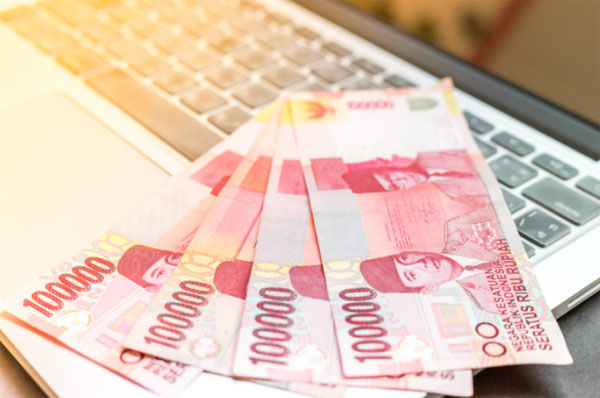
The Indonesian rupiah. [Photo/IC]
The People's Bank of China, the central bank, has forged a cooperation framework with Bank Indonesia, its Indonesian counterpart, for use of local currencies in bilateral trade and investment settlements.
The framework, a follow-up to the agreement signed on Sept 30,2020, marks "a key milestone" in strengthening monetary and financial cooperation between the two central banks, the PBOC said on its website.
"It is conducive to promoting the direct quotation between the Indonesian rupiah and the Chinese yuan, expanding the use of local currencies in bilateral trade, as well as facilitating trade and investment of the two countries."
The PBOC also said eight commercial banks and branches in China and 12 commercial banks and branches in Indonesia have been selected as the Appointed Cross Currency Dealers, or ACCDs, to undertake the transactions in the two currencies-the Indonesian rupiah and the Chinese yuan-under the new framework.
Bank Indonesia said the framework includes "the relaxation of relevant rules and regulations" to enhance the usage of local currencies.
This, observers said, will mark a further step toward the internationalization of the Chinese yuan, which will promote trade and direct investment in the region.
Analysts said the initiative for bilateral local currency settlement will enhance the stability of the Indonesian rupiah and the Chinese yuan by reducing dependence on other foreign currencies.
In 2018, the two central banks extended the bilateral local currency swap agreement for the promotion of trade and investment, as well as to sustain stability of domestic financial markets.
That agreement, which swapped 200 billion yuan ($30.94 billion) with 440 trillion rupiah, will expire by November, and monetary authorities of the two countries can continually extend the agreement if they achieve a consensus, according to a notice from the PBOC.
The RMB internationalization is now regarded as a process that has entered a new phase. Regions such as Southeast Asia and economies participating in the Belt and Road Initiative could be the key to expanding the use of RMB through cross-border trade and investment, said Fu Chenggang, chief economist of the International Financial Center Federation.
Bilateral trade, investment, logistics, transportation and personnel exchanges between China and many Southeast Asian countries have been promoted in recent years, which also helped increase the use of RMB. In addition, channels including currency swaps, RMB-denominated investments and loan funds have been expanded, which are innovative measures to facilitate the RMB internationalization, Fu said.
A flagship report from Invesco indicated that global central banks are increasing RMB-denominated foreign reserves while reducing the share of US dollar-denominated assets, as the US debt level has been increasing rapidly amid the COVID-19 pandemic.
The Chinese yuan has been a key beneficiary of this process and is widely seen as likely to eventually take a place within central bank portfolios, which will better reflect China's importance as an economy and as a trading partner, said the Invesco report published on Tuesday.